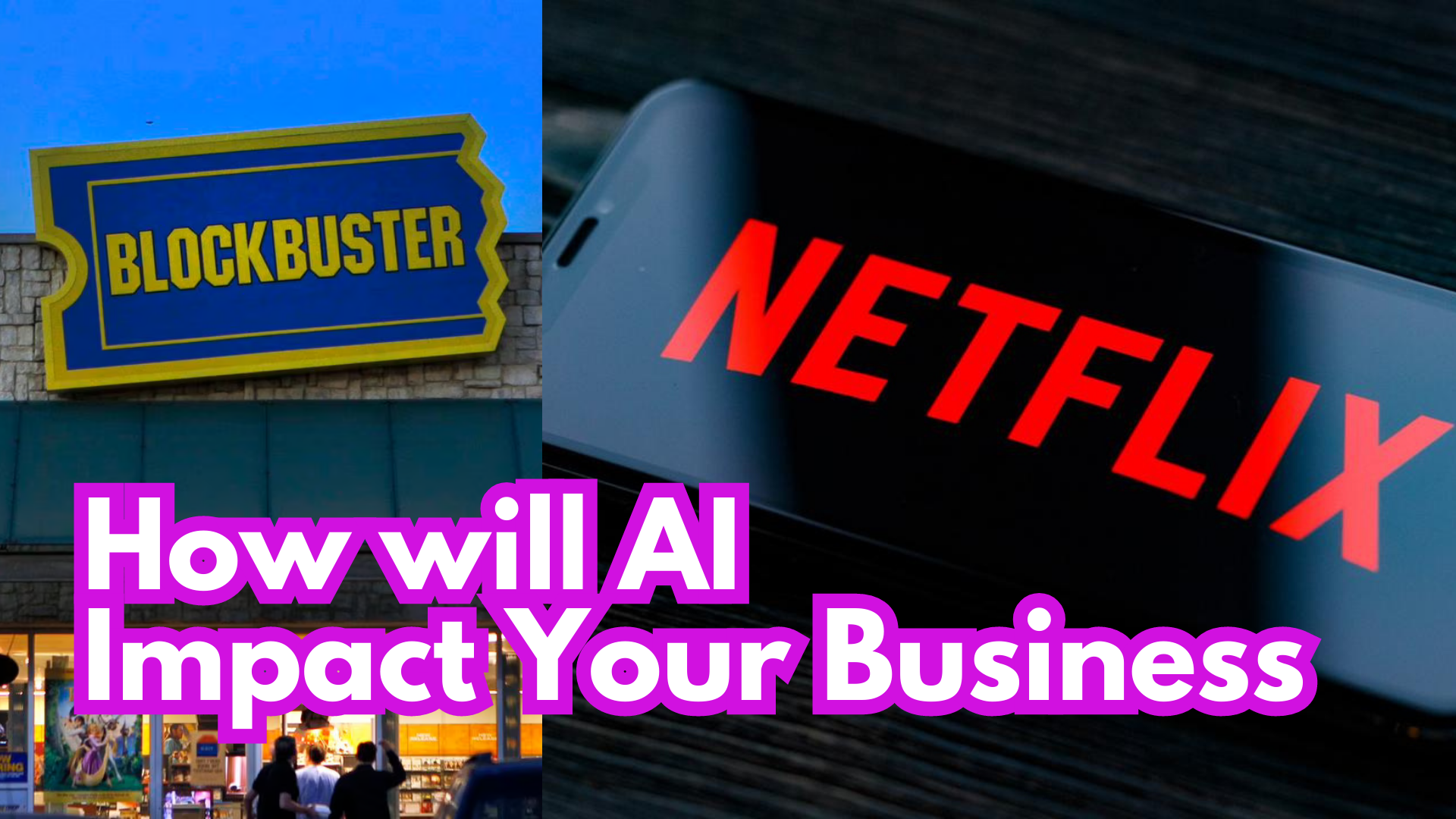Summary
In today’s fast-paced business landscape, leveraging emerging technologies is crucial for all businesses across all industries, especially for small and medium-sized businesses. Generative Artificial Intelligence (AI) has emerged as a game-changer, enabling companies to enhance productivity, streamline operations, and drive profitability. In this article, we explore how each department in your company can harness the power of generative AI to revolutionise their daily work. From strategic planning to customer support and everything in between, discover how generative AI can unlock new levels of efficiency, quality output, and business success.
Introduction
Last week, we looked at how generative AI affects employee job security and ways to pivot. This week we are turning the tables and looking at how it affects employers and business operations. Let’s not kid ourselves; if any businesses aren’t looking at this, we’re convinced they are already behind. You may either become a Netflix or continue as a Blockbuster (which we still have fond memories of). You already know the answer.
In the dynamic world of business, staying ahead of the curve is essential. The integration of generative AI offers an unprecedented opportunity for businesses to optimise their daily operations, reduce costs, and maximise profitability. Let’s dive into each department and explore how generative AI can transform their work processes.
1. Executive/Management Team: Strategic Planning and Decision-Making
The executive or management team plays a pivotal role in charting the course for the organisation. Generative AI tools can analyse vast amounts of data, market trends, and customer insights to provide valuable inputs for strategic decision-making. By leveraging AI-generated predictive models, the management team can make data-driven decisions, identify potential risks, and devise effective business strategies with a higher success rate.
2. Human Resources (HR): Streamlining Employee Management
HR departments are responsible for various critical tasks, from recruitment to employee management. Generative AI can automate repetitive HR processes such as resume screening, applicant tracking, and employee onboarding, freeing up valuable time for HR professionals to focus on more strategic initiatives. AI-powered chatbots can provide instant responses to employee queries, enhancing communication and employee satisfaction.
3. Finance and Accounting: Enhanced Financial Analysis and Reporting
Finance and accounting departments deal with complex data analysis, financial reporting, and compliance. Generative AI algorithms can streamline financial processes by automating tasks like data entry, reconciliations, and financial forecasting. These algorithms can also identify patterns and anomalies in financial data, enabling early detection of fraud or financial risks.
4. Sales and Marketing: Intelligent Customer Insights and Personalisation
Sales and marketing departments thrive on understanding customer behaviour and delivering personalised experiences. Generative AI models can analyse customer data, social media interactions, and market trends to provide actionable insights. This empowers sales and marketing teams to create targeted campaigns, optimise pricing strategies, and deliver personalised recommendations, ultimately increasing customer engagement and driving revenue growth.
5. Operations/Production: Optimising Efficiency and Quality
Efficient operations and production processes are crucial for any organisation’s success. Generative AI can optimise supply chain management by predicting demand, improving inventory management, and identifying potential bottlenecks in the production line. By leveraging AI-driven quality control systems, businesses can detect defects or anomalies in real-time, ensuring high-quality output and reducing waste.
6. Information Technology (IT): Intelligent Automation and Cybersecurity
IT departments face the challenge of managing complex technology infrastructures and ensuring data security. Generative AI can automate routine IT tasks like system updates, network monitoring, and help desk support. AI-powered cybersecurity tools can identify and mitigate potential threats, proactively protecting the organisation’s sensitive data and minimising the risk of cyberattacks.
7. Customer Service/Support: Seamless Customer Experience
Delivering exceptional customer service is vital for building customer loyalty. Generative AI-powered chatbots can provide instant responses to customer queries, offering 24/7 support and reducing response times. Natural Language Processing (NLP) algorithms enable chatbots to understand and respond intelligently to customer enquiries, ensuring a seamless and personalised customer experience.
8. Research and Development (R&D): Accelerating Innovation and Product Development
Research and Development departments drive innovation and product advancement. Generative AI can assist R&D teams by analysing vast amounts of research data, scientific papers, and market trends. This technology can generate new ideas, suggest potential areas of exploration, and even aid in the development of prototypes. By harnessing generative AI, R&D departments can accelerate the innovation process, reduce time-to-market, and gain a competitive edge.
9. Legal and Compliance: Ensuring Regulatory Adherence
The legal and compliance department plays a crucial role in ensuring the organisation’s adherence to laws, regulations, and industry standards. Generative AI can analyse legal documents, contracts, and regulatory frameworks to identify potential risks and ensure compliance. AI-powered tools can streamline contract management, analyse legal language, and provide real-time updates on changing regulations, enabling legal and compliance professionals to make informed decisions and mitigate legal risks.
10. Supply Chain/Procurement: Optimising Procurement and Supplier Management
Efficient supply chain management is vital for cost optimisation and timely delivery. Generative AI can analyse historical data, market trends, and supplier performance to optimise procurement processes. AI algorithms can automate supplier selection, negotiate contracts, and identify potential cost-saving opportunities. By leveraging generative AI, supply chain and procurement departments can streamline operations, reduce costs, and ensure timely delivery of goods and services.
11. Administration/Office Management: Streamlining Administrative Tasks
Administrative tasks are essential for the smooth functioning of any organisation. Generative AI can automate administrative processes such as data entry, appointment scheduling, and travel arrangements. AI-powered virtual assistants can handle routine administrative tasks, allowing administrative professionals to focus on more strategic responsibilities. By streamlining administrative tasks, businesses can improve efficiency and free up valuable time and resources.
12. Public Relations (PR): Enhancing Brand Image and Communication
Maintaining a positive brand image and effective communication are crucial for businesses. Generative AI can analyse media trends, social media conversations, and customer sentiment to provide valuable insights for PR professionals. AI-powered tools can generate press releases, social media posts, and tailored messaging to enhance brand reputation and engage with target audiences effectively. By leveraging generative AI, PR departments can strengthen brand image, manage crises efficiently, and build meaningful connections with stakeholders.
Conclusion
These are just a few examples of how generative AI can be applied in various departments. We are only scratching the surface without going into details. The idea we hope to achieve in this article is to ignite a spark in you as a business owner and an employer, to start the dialogue, and to nudge you along in this momentous shift in how businesses will be operated moving forwards. Our goal is to ensure no one becomes a Blockbuster.
The potential applications of AI are vast, and there are numerous other ways in which generative AI can be used to augment and streamline daily work processes across departments. The key is to identify specific tasks or challenges within each department and explore how AI can assist in addressing them.
Furthermore, it’s worth noting that the field of generative AI is rapidly evolving (at exponential quantum speed), and new applications and techniques continue to emerge. Staying up-to-date with the latest advancements in AI technology can provide businesses with a competitive edge and open up new possibilities for leveraging generative AI in their daily operations.
It is important to exercise caution and ensure the ethical use of AI in business processes. Consider the potential biases or limitations of AI models and address them accordingly. Additionally, ensure compliance with relevant data privacy regulations and maintain transparency when implementing AI systems that interact with customers or handle sensitive data. Remember, human judgement is still needed, and AI cannot replicate that (for now anyway). Harness it well, and watch your business fly past your competitors.
Overall, by leveraging generative AI in their daily work processes, businesses can benefit from increased efficiency, improved decision-making, and enhanced customer experiences, leading to a competitive advantage in today’s rapidly changing business landscape. The time is now to be the disruptor, not the disrupted.








